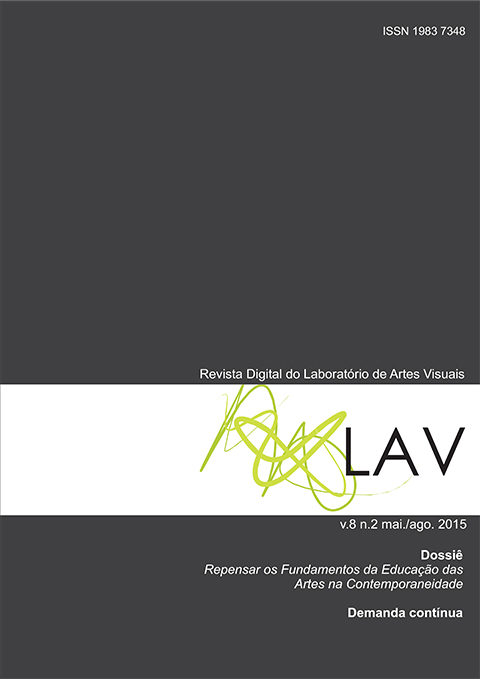Art and Design teaching in Brazil: united before Modernism
DOI:
https://doi.org/10.5902/1983734819869Keywords:
Design Education, Walter Smith, Rui BarbosaAbstract
This paper seeks to demonstrate the divorce established between the Art Education practiced in the Imperial Academy of Fine Arts, after the Republic, named National School of Fine Arts and the Design Teaching proposed by liberals for primary and secondary public schools. While private schools for rich boys and girls remained tied to copies of European landscapes and portraits, in public schools, art education was practiced towards an initiation to Design, based on Walter Smith ideas through Rui (Ruy) Barbosa’s projects. The political concern of teaching design for labor purposes was a constant from the first industrial boom in Brazil until modernism.Downloads
References
BARBOSA, Rui, Reforma do ensino secundário e superior. Obras completas (1ª Ed. 1882). Rio de Janeiro, Ministério de Educação e Saúde, v.9, t2., 1941.
BARBOSA, Rui. Reforma do ensino primário. Obras completas (1ª Ed. 1883). Rio de Janeiro, Ministério de Educação e Saúde, v.10, t4, 1947.
BORGES, Abilio Cesar Pereira. Geometria popular. 41ª Ed. Rio de Janeiro: Francisco Alves, 1959.
POMPÉIA, Raul. O Ateneu. São Paulo: Melhoramentos, s.d., p. 135-38.
SMITH, Walter. Art, education: scholastic and industrial. Boston: Osgood & Co., 1872.
SMITH, Walter. Teachers’s manual of freehand drawing. (1ª Ed. 1873). Boston: Prang, 1874.






